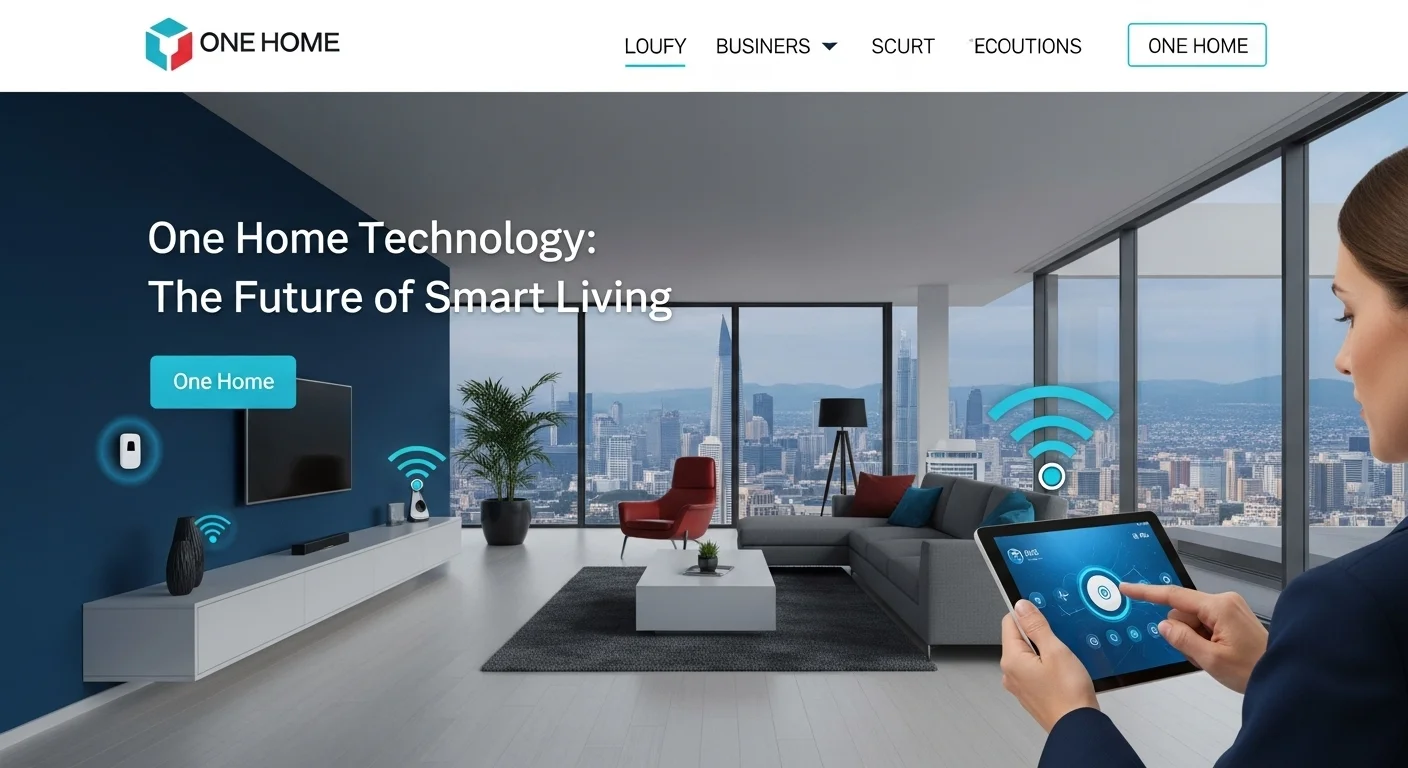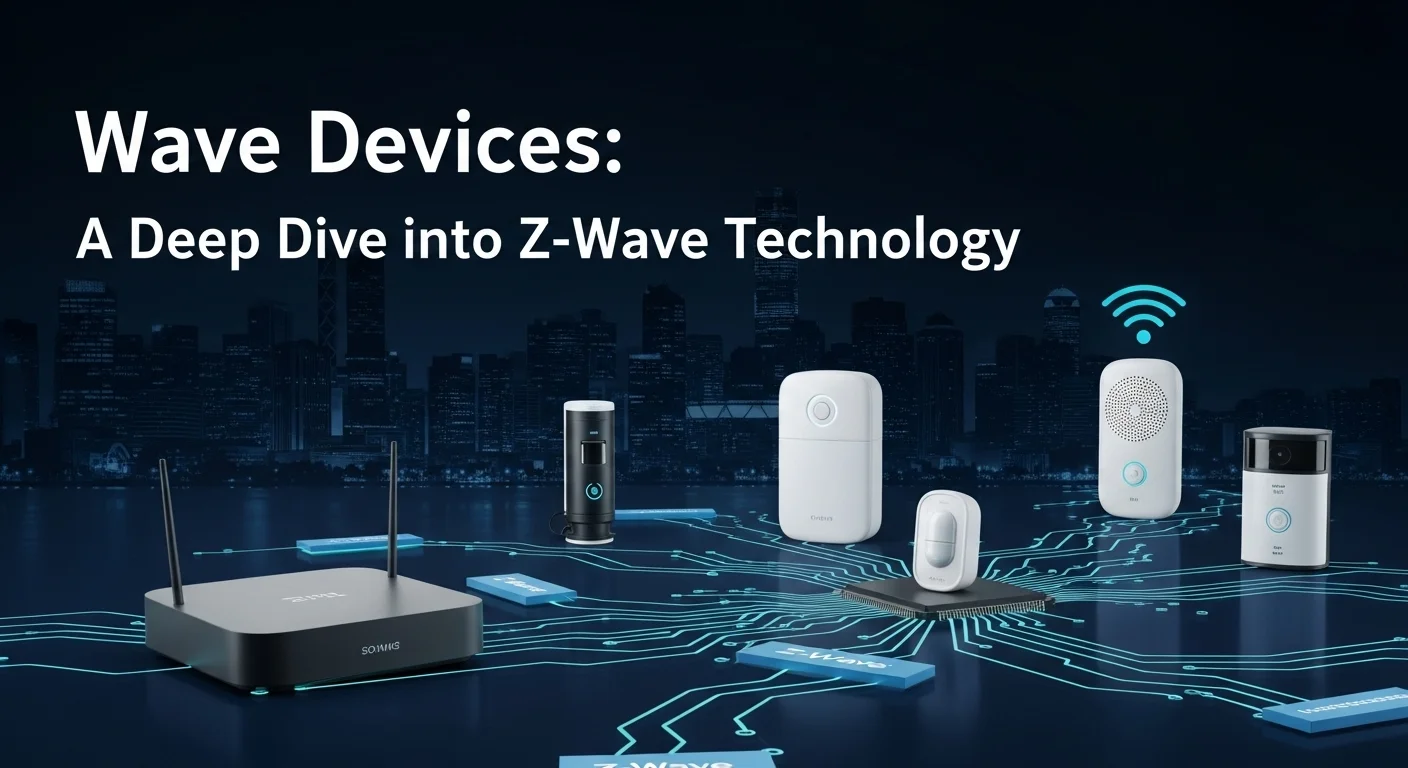Your Shop, Supercharged: The Real-World Tech Guide for 2025

Executive Summary
In all my years helping entrepreneurs, I've seen one thing change the game more than anything else: technology. It’s no longer just for the big guys. Today, the right tech can turn a simple shop idea into a thriving business. But where do you start? It's easy to get lost in a sea of jargon about AI, cloud computing, and cybersecurity. That's why I wrote this guide. I want to cut through the noise and give you a straightforward, human-friendly look at the tools that actually matter. We'll go from dreaming up business ideas and finding the perfect name for your shop to using data to make smarter decisions. Think of me as your personal tech guide, here to help you build a shop that's not just competitive, but ready for whatever comes next.
Table of Contents
Table of Contents
- What Is a Modern Business Shop?
- The Foundational Tech Your Shop Can't Live Without
- Choosing the Right Name in a Digital World
- Harnessing AI to Work Smarter, Not Harder
- The Cloud: Your Business's Best Friend
- Cybersecurity: Protecting Your Hard Work
- Practical Tips for a Smooth Tech Experience
- Must-Have Tech Tools and Gadgets
- Creating Customer Experiences They'll Love
What is a Modern Business Shop? (And Why Tech Matters)
When you hear 'business shop,' you might picture a classic storefront on Main Street. But today, that picture has expanded dramatically. A modern business shop is any venture—a physical store, an online shop, a service you run from your home, or even a mix of all three. The goal is the same: serve your customers. What's changed is how we do it. Technology is the invisible force that powers today's shops, handling everything from payments to creating personal connections with customers. Honestly, embracing tech isn't just an advantage anymore; it’s the key to survival and growth. If you’re brainstorming ideas for a new small shop, understanding this from day one is your first big step toward success.
I remember working with a small boutique owner who was drowning in paperwork. She spent her evenings manually counting inventory and trying to figure out what was selling. It was exhausting. We introduced a simple Point of Sale (POS) system, and it changed her life. These systems aren't just cash registers; they're the command center of your business. They handle payments, track every item you sell in real-time, and quietly collect data about what your customers love. This information is pure gold. It helps you stock the right products, run smarter marketing, and understand your business in a way you never could with a pen and paper. This is the magic of the modern business shop: letting technology handle the tedious work so you can focus on what you love.
The Foundational Tech Your Shop Can't Live Without
When you're sketching out your business plan, it's vital to include a budget for core technology. Think of it as building the foundation of a house. Here are the pillars you'll need:
1. Point of Sale (POS) System: This is your non-negotiable starting point. Modern systems like Square, Shopify POS, or Lightspeed are built for small businesses. Many are cloud-based, which means you can check your sales data from your phone while you're on vacation. That kind of flexibility is priceless for an entrepreneur.
2. Customer Relationship Management (CRM): A CRM is like a digital address book that remembers everything about your customers for you—their birthdays, what they bought last, and how they found you. It lets you send personalized thank-you notes or special offers, building loyalty that turns one-time buyers into lifelong fans. Many POS systems now have a basic CRM built right in.
3. Inventory Management Software: For anyone selling products, this is a lifesaver. Having too much stock ties up your money, but running out means lost sales and unhappy customers. Good inventory software, often part of your POS, automates tracking. It can alert you when you're running low on an item and even help you predict what will be popular next month based on past sales.
4. An Online Presence: In our world, if you're not online, you're nearly invisible. This doesn't mean you need a massive e-commerce empire from day one. It can be as simple as a Google Business Profile so people can find your hours, a social media page to show off your products, or a simple website. The goal is to create an 'omnichannel' experience, where your physical and digital stores work together. A customer might see a new product on your Instagram, check it out on your website, and then come into the store to buy it. That seamless journey is what sets successful businesses apart.
Choosing the Right Name in a Digital World
Coming up with a name for your business is one of the most exciting—and stressful—parts of starting up. It's more than just a name; it’s your identity. When brainstorming, think like a modern customer. Is the name easy to spell and type into Google? Does it sound good when someone asks Alexa or Siri to find you? There are AI-powered name generators that can offer some fun ideas, but the best names are often born from a good old-fashioned brainstorm. A name like 'The Gilded Page' for a bookstore sounds classic and memorable. Think about whether the name can grow with you and if the website domain and social media handles are available. A great name is a marketing tool in itself, so give it the attention it deserves.
The real takeaway here is that technology gives small shops the power to operate like big enterprises, without the huge cost. By investing in these foundational tools, you're not just buying software; you're buying efficiency, customer loyalty, and the potential for incredible growth. You're setting your business idea up for a future of success.

A Complete Guide to Smart Business Solutions
Once you have the basics down, you can start exploring more advanced tools that will truly set your business apart. Let's dive into some of the game-changing technologies—Artificial Intelligence (AI), Cloud Computing, and Cybersecurity—and how you can use them to build a smarter, more resilient shop.
Harnessing AI to Work Smarter, Not Harder
AI isn't just for sci-fi movies anymore; it's a practical tool that can give your small business a serious advantage. At its core, AI is about teaching computers to learn and automate tasks, which can be incredibly helpful in a shop setting.
1. AI for Customer Engagement: Imagine having a helpful employee who works 24/7 without needing a coffee break. That's what an AI-powered chatbot can do for your website or social media. It can answer common questions ('What are your hours?'), help customers track their orders, and even recommend products. This frees you and your team up to handle the more personal, complex customer interactions that build real relationships.
2. AI for True Personalization: AI can look at a customer's shopping habits and help you create experiences just for them. Have you ever been on a site that recommends products you actually love? That's AI at work. It can help you send targeted emails with offers on things a customer has looked at before or might like based on past purchases. This makes your customers feel seen and understood, which is a powerful way to build loyalty.
3. AI for Predicting the Future: One of AI's superpowers is spotting patterns. It can analyze your sales data and predict future demand with surprising accuracy. For a cafe owner, this could mean knowing exactly how many croissants to bake for a Saturday morning, reducing waste and maximizing profit. For a retailer, it means stocking up on the right items before a holiday rush. This predictive power helps you make smarter inventory and staffing decisions.
The Cloud: Your Business's Best Friend
If you use services like Google Drive or Dropbox, you're already using the cloud. For a business, the cloud is a way to access your tools and data from anywhere, on any device. It offers flexibility and security without the need for expensive, clunky servers in your back office.
1. Affordable, Powerful Software (SaaS): Most modern business software—from your POS system to your accounting tools (like QuickBooks Online) and your e-commerce platform (like Shopify)—is cloud-based. You typically pay a small monthly subscription instead of a huge upfront cost. The best part? The provider handles all the updates and security, so you can focus on running your business.
2. A Digital Safe for Your Data: The cloud provides a secure place to store everything important: sales records, customer lists, financial reports. If your computer crashes or your shop experiences a disaster like a fire or flood, your data is safe and sound. Automatic backups are a cornerstone of being able to recover and keep your business running, no matter what happens.
3. Grow Without Growing Pains: The beauty of the cloud is that it grows with you. When the holiday season hits and your website traffic explodes, a cloud-based site can handle it without crashing. As you hire more employees or open a new location, your cloud services can scale up effortlessly. You only pay for what you use, making it an incredibly cost-effective way to power your growth.
Cybersecurity: Protecting Your Hard Work
In our digital world, protecting your business from online threats is as important as locking the front door at night. A data breach can be devastating, not just financially, but in the loss of customer trust you've worked so hard to build. Cybersecurity isn't about being paranoid; it's about being prepared.
1. The Security Basics: Start with simple, powerful habits. Use strong, unique passwords for every account and turn on multi-factor authentication (MFA) whenever it's offered. MFA is that little code sent to your phone, and it's one of the best ways to stop hackers. Also, always keep your software updated—those updates often contain critical security fixes.
2. Secure Your Network and Payments: Change the default password on your shop's Wi-Fi router and use strong WPA3 encryption. For payments, make sure your POS system is PCI DSS compliant. That's the industry standard for handling credit card information safely, and it's non-negotiable for protecting your customers.
3. Your Team is Your First Line of Defense: The biggest security risk often isn't technology; it's human error. Train your employees on the basics of cybersecurity. Teach them how to spot suspicious 'phishing' emails and the importance of protecting customer data. When your whole team understands their role in security, your business becomes much, much safer.
By thoughtfully weaving these technologies into your business, you're not just modernizing; you're building a smarter, stronger, and more secure foundation. This is how you take a great business idea and turn it into a lasting success.

Tips and Strategies for a Great Tech Experience
Choosing the right tech is just the first step. Making it work seamlessly for your business, your team, and your customers is where the real magic happens. Here are some practical tips and strategies to help you turn your tech investments into a genuine advantage and bring your business ideas to life.
Best Practices for a Smooth Tech Rollout
How you introduce new technology is just as important as what you choose. A bumpy start can create frustration, so follow these steps for a smooth landing.
1. Plan Before You Pay: Before you buy any new software, sketch out a simple plan. What business goal will this tool help you achieve? For instance, if your goal is to get more repeat customers, your plan might involve choosing a POS with a great loyalty program feature. A clear goal keeps you from buying shiny new tech you don't actually need.
2. Keep It Simple: When you're looking at software, always put user-friendliness at the top of your list. If a system is complicated, your staff won't want to use it, which can lead to mistakes and wasted time. Look for clean, intuitive designs and good customer support. Better yet, let your employees try it out before you commit. The best tool is one your team will actually embrace.
3. Roll It Out in Phases and Train, Train, Train: Don't try to launch everything at once. Introduce one new system at a time, get comfortable with it, and then move on to the next. Most importantly, set aside real time to train your employees. Well-trained staff feel more confident and provide better service. Create a simple cheat sheet or checklist they can keep by the register.
4. Make Security a Day-One Habit: I can't stress this enough: build your business with security in mind from the very beginning. This means strong passwords, MFA, and secure data backups right from the start. Make cybersecurity part of your daily routine, so everyone on your team understands they have a role to play in protecting the business.
Must-Have Tech Tools and Gadgets
Equipping your shop with the right gear can make a huge difference in your daily efficiency and the vibe you create for customers.
1. A Smart POS and E-commerce Hub: Think of your POS and e-commerce platform as one connected brain. Systems like Shopify POS or Toast (for food service) are fantastic because they integrate everything beautifully. For your online store, focus on good SEO (Search Engine Optimization) so customers can find you on Google. Use beautiful photos and write product descriptions that tell a story. Platforms like Shopify or Wix have built-in tools to help with this.
2. Marketing on Autopilot: Tools like Mailchimp or Klaviyo let you automate your email marketing. You can set up an email to automatically welcome new subscribers, remind shoppers about items left in their online cart, or send a special birthday discount. It's a 'set it and forget it' way to stay connected with customers.
3. 'Smart Shop' Technology: You’ve heard of the smart home; now think 'smart shop.' This is all about using simple automation to save money and create a better atmosphere. A smart thermostat like a Nest can learn your opening hours and adjust the heat or AC automatically, saving a bundle on energy bills. Smart lighting can create the perfect mood, and smart security cameras give you peace of mind by letting you check on your shop from your phone.
Creating Customer Experiences They'll Love
At the end of the day, all this technology should serve one primary purpose: making your customers happy.
1. A Seamless Journey: Your online and physical stores should feel like two parts of the same whole. Make sure your inventory is synced in real-time so a customer doesn't buy something online that you just sold in the store. Offer convenient options that modern shoppers love, like 'buy online, pick up in-store' (BOPIS). These little things make a huge difference.
2. Make It Personal: Use the data you gather to make customers feel special. Greet them by name in emails. Recommend new arrivals based on what they've bought before. A simple loyalty program can work wonders. This kind of personalization shows customers you see them as people, not just numbers.
3. Listen and Get Better: Use technology to ask for feedback. Send a simple survey after a purchase. Pay attention to your online reviews and social media comments. This feedback is a gift—it tells you exactly where you can improve. Acting on it shows your customers you're listening and that you're committed to being the best shop you can be.
When you're exploring ideas for a new small shop, think about how tech can be part of your unique story. Perhaps a clothing boutique with a virtual 'try-on' tool, or a local bookstore with an online book club. When choosing a name, make sure it's easy to find and remember online. For more forward-thinking ideas on the future of retail tech, I often point people to resources like the Forbes Tech Council. By using these strategies, you'll build a business that's not just profitable but a place your customers truly love.
Expert Reviews & Testimonials
Sarah Johnson, Boutique Owner ⭐⭐⭐⭐
As a small boutique owner, this was a great starting point. I especially liked the section on POS systems. I would have loved a few more real-life case studies, but overall, very helpful!
Mike Chen, IT Consultant ⭐⭐⭐⭐
Solid overview for IT consultants like me who work with small businesses. The breakdown of AI and cloud solutions was spot-on. A few of the technical explanations could be a bit simpler for the complete novice, but it's a strong guide.
Emma Davis, Tech Strategist ⭐⭐⭐⭐⭐
Absolutely fantastic! As a tech strategist, I'm always looking for comprehensive resources, and this one is top-notch. It connects all the dots between tech theory and real-world business application. Perfectly explained and highly recommended.



